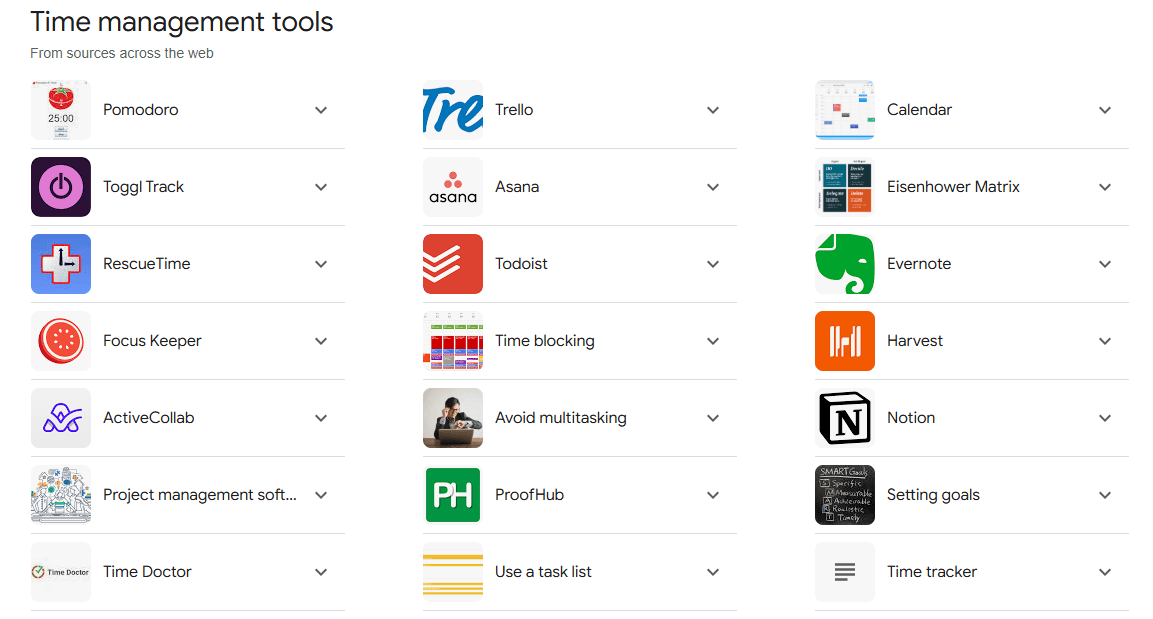Time Management Strategies for Project Managers

Project management involves planning, executing, monitoring, and finalizing tasks within defined timelines, budgets, and objectives to deliver desired outcomes successfully. Project managers often enhance their skills through advanced degrees, gaining valuable tools and strategies to improve their effectiveness. However, even with comprehensive training, unexpected challenges can arise, potentially affecting project success.
One common challenge for project managers is poor time management. Balancing multiple tasks, meeting deadlines, and aligning team efforts can become challenging when time isn’t effectively allocated or prioritized. This often results in delays, missed milestones, and inefficiencies, ultimately jeopardizing the project’s success. To overcome this obstacle, effective time management strategies are crucial, enabling smooth project execution and the achievement of desired objectives.
Importance for Project Management:
Time management is one of the most critical skills a project manager can possess. Successful project delivery depends on balancing multiple tasks, managing deadlines, and optimizing resources.
Here’s why time management is essential for project managers:
- Meets Deadlines and Milestones
- Improves Productivity
- Resource Optimization
- Minimizes Stress and Confusion
- Prevents Scope Creep
- Increases Quality
- Improves Communication and Collaboration
- Enhances Risk Management
Proper time management ensures projects progress on schedule, helping teams meet deadlines and milestones. It allows project managers to prioritize tasks, allocate resources efficiently, and manage risks proactively. Clear timelines reduce stress and improve communication, resulting in smoother collaboration. Ultimately, effective time management enhances efficiency, reduces delays, and maintains quality, leading to better project outcomes.
Time Management Strategies for Project Managers
Today, we’ll explore seven key time management strategies proven to improve productivity, streamline workflows, and drive project success. Effective time management is essential for individuals and professionals alike, particularly for project managers navigating complex schedules and demanding deadlines.
Let’s explore the strategies that will empower you to optimize your time and achieve better results.
1. A well-defined project plan:
A well-defined project plan is crucial for effective time management, as it provides a structured framework for executing tasks. Without a clear plan, time is often wasted on discussions about project details instead of taking productive action. This is why a project manager should prioritize creating a detailed project plan to ensure smooth execution and avoid common issues like rework or miscommunication.
✔️ Task Lists and Deadlines
Outline tasks, deadlines, and goals for a clear project direction.
✔️ Team Role Understanding
Assign tasks based on team members’ skills to avoid confusion.
✔️ Scope Statement Collaboration
Work with stakeholders to set clear expectations and prevent misunderstandings. Once the project plan is in place, it’s essential to focus on time management within your daily schedule. Writing down your schedule allows you to realistically assess available time, considering meetings, breaks, and interruptions.
✔️ Time Allocation
Document activities to ensure time is spent on high-priority tasks. Finally, to further optimize time management, analyzing your daily productivity patterns can offer valuable insights. Identifying when you’re most focused allows you to schedule complex tasks during those peak times and simpler ones during less productive periods.
✔️ Productivity Optimization
Align tasks with your most productive hours to maintain a balanced workflow.
2. Avoid meetings without a purpose:
Unnecessary meetings can significantly drain time and hinder project progress, and it’s the project manager’s role to minimize their impact. Meetings that were initially deemed necessary may no longer be relevant as the project evolves, or they may be scheduled too frequently with no real progress made between sessions. Such meetings disrupt the workflow and become a costly time-waster.

Here’s how project managers can reduce unnecessary meetings
- Determine whether an in-person meeting is necessary or if an email update could be sufficient.
- Every meeting should have a set agenda created in advance.
- Only include individuals whose input is required to achieve the meeting’s goals.
- Assign roles, such as a note-taker and someone responsible for outlining action items.
- Select more focused, on-demand meetings when significant updates or decisions are needed
Prioritizing efficiency in meetings ensures that the team remains productive and that time is spent where it matters most, on progressing the project rather than on ineffective discussions.
3. Use time management tools:
Using time management tools is essential for managing projects effectively, especially when dealing with complex tasks and multiple components. These tools provide a structured way to track progress, allocate resources efficiently, and keep the team organized.

Some of the most efficient project management tools include:
- Jira
- Trello
- Asana
- Monday.com
- Microsoft Project
- ClickUp
- Smartsheet
- Wrike
- Basecamp
- TeamGantt
For instance, platforms like Jira offer features such as issue tracking and Gantt charts, which allow project managers to closely monitor timelines, identify potential bottlenecks, and ensure tasks are assigned appropriately. By using such tools, decision-making becomes more streamlined, and the project is much easier to manage.
In addition to timeline management, time management tools prevent disorganization. For example, visual aids like Gantt charts, PERT charts, and timesheets provide clear insights into task progress and help managers assess dependencies. Without such tools, team members might struggle to keep track of their responsibilities, causing unnecessary delays.
Each of these tools offers unique features that can help enhance different aspects of project management. By selecting the best one for your needs, you can ensure your projects stay on track and achieve their goals.
4. Automate recurring tasks:
We’re all familiar with the burden of tasks that need to be done over and over again—reminders, emails, status updates, and simple project steps. We often end up repeating them in a sort of mindless cycle, using precious time that could be better spent on deeper, more impactful work.
What happens when you automate those repetitive, time-consuming tasks? It leads to:
- Time savings: Frees up time for more strategic and creative tasks.
- Increased productivity: Enables focus on high-priority work.
- Reduced errors: Minimizes human mistakes and improves quality.
- Improved work-life balance: Reduces stress by handling repetitive tasks.
- Scalability: Allows business growth without increasing workload.
However, it’s essential to recognize that this doesn’t negate the need for a human touch, especially about the judgment and creative work that will define the success of the project.
In conclusion, your time is too valuable to let it slip away on tasks that can easily be automated. Take control of your time, take control of your projects, and then watch the impact that freedom creates.
5. Setting boundaries and saying “no”:
Often, there are numerous demands from stakeholders, team members, and clients that can feel like they all require your immediate attention. Without clear boundaries, it’s easy to get overwhelmed and distracted.

It can be challenging to say “no”, but it’s crucial for maintaining control over your schedule and workload. It doesn’t mean you’re being uncooperative. On the contrary, it’s a powerful act of respect—for your time, for your team’s efforts, and for the project as a whole.
For example, if you’re asked to attend a meeting that isn’t relevant to your current objectives, don’t hesitate to politely decline or suggest an alternative approach. Maybe a simple email or update would suffice rather than sitting through an hour-long discussion that takes you away from more pressing tasks.
It allows you to protect your time and focus on the tasks that will drive your project forward. Remember, every time you say “no” to something unimportant, you’re saying “yes” to your project’s success. By establishing these practices early, you’re building a culture of respect for time, yours, and your team’s and ensuring that everyone stays on track.
6. Estimating Time / Time Tracking:
Time tracking is an essential tool for project managers, especially when it comes to effectively managing resources and ensuring projects are completed on time. By tracking time, project managers can gain valuable insights into team productivity, monitor progress against deadlines, and adjust plans when necessary.
It’s not just about monitoring employees; it’s about optimizing workflow, improving efficiency, and making data-driven decisions.
Challenges of Time Tracking
Time tracking might seem like a straightforward concept, but various challenges can arise. Here are some obstacles that could prevent efficient time tracking:
- Perfectionism
- Procrastination
- Bad Prioritizing
- Multitasking
- Overbooking
- Lack of Rest
Best Practices for Time Tracking
- Set Clear Goals
- Use Simple, Efficient Tools
- Automate Time Tracking
- Delegate Wisely
- Take Breaks
Time tracking is not about micromanaging, it’s about creating an environment that values efficiency, transparency, and realistic planning. With the right tools and a focused approach, it can enhance project management practices and help your team reach their goals on time.
7. Learn to Adapt and Adjust:
Projects rarely go exactly as planned, and flexibility is key to ensuring successful delivery despite obstacles. Project management often involves changing circumstances, unexpected issues, and new information. A project manager who can adapt is far more likely to navigate these complexities effectively and keep things moving forward smoothly. Read also: Understanding DevOps A Comprehensive Overview 2024
Why Adaptability Matters
- Things go wrong from time to time.
- People, unfortunately, don’t always work at the speed or capacity you anticipated.
- Clients might change priorities mid-project.
How to Adapt and Adjust Effectively
- Stay Calm Under Pressure
- Embrace Agile Practices
- Prioritize and Reprioritize
- Maintain Open Communication
By ensuring you or your team aren’t over-promising, you make room for adjustments down the line. A project manager needs to acknowledge the limits of the project’s scope, resources, and timeframe. So, embrace flexibility and learn to adjust the sails, not the wind.
Impact of these Strategies:
By consistently applying these time management strategies, project managers can make their projects run smoother, reduce risks, and help their teams perform better. This can lead to successful project completions, which is a win for everyone involved.
Benefits of Time Management for Project Managers
Here’s a concise breakdown of the benefits:
Improved Efficiency
Time management techniques help project managers prioritize tasks, ensuring that the most important aspects of the project are given proper focus, which reduces wasted time on non-essential activities.
Better Resource Allocation
Proper planning and scheduling make it easier to allocate team resources effectively, preventing overload and ensuring the right people are working on the right tasks at the right time.
On-Time Delivery
By setting clear goals and deadlines and sticking to a structured schedule, project managers can avoid last-minute rushes and ensure the project is delivered on time.
Stress Reduction
With an organized plan, project managers can avoid the panic that comes with tight deadlines and unexpected issues, promoting better decision-making and problem-solving.
Enhanced Team Collaboration
Time management tools provide visibility of tasks and progress, fostering better communication, accountability, and collaboration among team members.

Key Takeaway:
Effective time management is essential for project managers, as it directly influences project success by ensuring timely delivery, optimizing resources, and enhancing team collaboration. By implementing strategic time management practices, project managers can navigate challenges more efficiently, leading to improved productivity and overall project outcomes. Boost productivity and meet your goals with our expert services. Get in touch today! Contact Us






